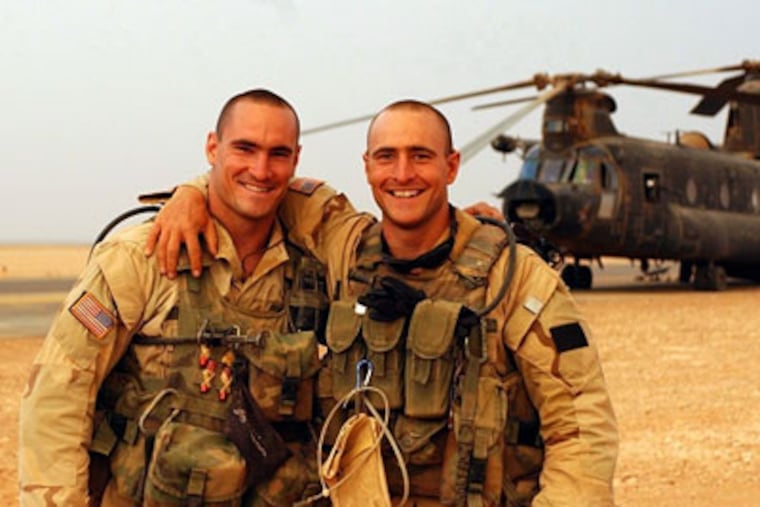Pat Tillman documentary follows family's quest for answers
Pat Tillman Jr., the charismatic defensive back for the Arizona Cardinals, startled his franchise and his family when in 2002 he announced that he was turning down a $3.6 million NFL contract in order to join the Army Rangers for service in Afghanistan and Iraq. He and his brother Kevin were in the same platoon.

Pat Tillman Jr., the charismatic defensive back for the Arizona Cardinals, startled his franchise and his family when in 2002 he announced that he was turning down a $3.6 million NFL contract in order to join the Army Rangers for service in Afghanistan and Iraq. He and his brother Kevin were in the same platoon.
In April 2004 news broke that Cpl. Tillman had died in an ambush by 20 Taliban fighters. Early reports were that he had risked his life so others could live. Posthumously, he was awarded the Silver Star.
Early reports, as we now know, were dead wrong. Tillman was the victim of friendly fire while on a reconnaissance mission in a rugged canyon in Afghanistan, the casualty of soldiers eager to be in a firefight. The shooters were soldiers from his own platoon.
Amir Bar-Lev's The Tillman Story is a gripping drama that reconstructs Tillman's life, death, and legacy. It is also a story of mother-love that shows how Dannie Tillman conducted her own investigation into what went down that day in April. She and her ex-husband, Pat Sr., fight to know who spun Tillman's singularly unheroic death into inspirational propaganda about American heroism and sacrifice.
The Tillmans' efforts to find basic answers - Who killed him? Who ordered the cover-up? - are made more difficult because the Army burned material evidence, including their son's diary and uniform.
As you watch the documentary, it's hard not to agree with Army veteran Stan Goff, who helped Dannie Tillman weed through 3,000 redacted documents pertaining to the case. In Goff's view, the military spun a public-relations nightmare into a story of heroism, turning Tillman's corpse "into a recruiting poster" to incite support for war.
Bar-Lev tells Tillman's story Rashomon-style, incorporating multiple perspectives on Tillman's politics (left-liberal), religion (atheist), and personal relations (he married Marie, his first and only girlfriend). Still, it is a documentary with more details of how he died than how he lived.
We never know why he enlisted. (Jon Krakauer, who wrote about Tillman in the book Where Men Win Glory, suggests that he enlisted out of his sense of duty and honor.) Though critical of the war, Tillman declined to cut short his tour of duty even though after 18 months of service the Army offered him an honorable discharge.
The Tillmans likely will never know how high up the cover-up of the death went. But Bar-Lev's brilliant movie enables them to reclaim the soldier who was turned into a poster boy for a war he disagreed with, and see him as a man, not a hero.